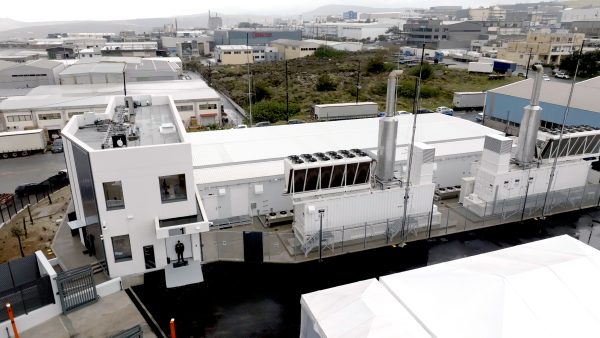
The regulatory framework the International Maritime Organization (IMO) will be deciding on in the near future, with a view to decarbonizing shipping by 2050, can only succeed if it is smart, fair and targets the real polluters. And, it must also take into account the specific features of the different shipping sectors into account, said Greek Shipping Minister Christos Stylianides in a speech yesterday on the first day of the 33rd IMO General Assembly in London.
Outlining the Greek position, Stylianides also said that the charterer will bear any green transition-related costs, since it is their decisions that determine a ship’s behavior (speed, itinerary, etc.). He also made it clear that cooperation between all the stakeholders—meaning shipyards, engine manufacturers and fuel companies—would be needed to ensure the transition’s success. “We should work with a united spirit. Engage with and involve all the actors: ship-owners, fuel producers, ports, charterers, engine manufacturers and shipyards. This is the only way to achieve carbon-neutral shipping by 2050,” he said.
Carbonation is one of the biggest challenges facing shipping today. And the IMO is the right place to take decisions. “The answer to ‘how’ is simple and straightforward: We must all fully support the rapid implementation of the revised 2023 IMO GHG strategy,” Stylianides said.
The Strategy
The strategy to which the IMO is already committed foresees the transition to zero emissions taking place “in or around 2050.” Also, from next March, discussions will begin at the IMO on whether “market-based measures,” as they are called, such as a levy on fuel or tax on shipping pollution, should be taken in addition to technical and operational measures to achieve the green transition.
At the Hellenic Ministry of Shipping, they are expecting “a major battle over this measure at the IMO” since various nations, mainly in South America, are opposed to it on the grounds that such a tax would make their products far more expensive, given the long distances they have to be transported to the countries where they are consumed.
Speaking at the IMO, Stylianides commented on the issue indirectly, noting that the efforts of the Organization’s members should “focus on striking the right balance. Between what the world needs and how the overall shipping chain can deliver it. Efficiently and cost-effectively.” He asked those present to “be pragmatic” and take into account “costs and their effect on the most vulnerable.”
It should be remembered that the EU has already decided to include shipping in the European Emission Trading Scheme (EU ETS) as a market-based measure—a measure opposed by the shipping industry, which sees it as a purely “tax-based,” rather than environmental, measure.
Nonetheless, the EU is looking ahead to a global regulatory framework from the IMO within the next two years, and does not rule out adapting its own measure to align with a satisfactory decision from the IMO, allowing all shipping to operate under the same legal regime worldwide.
Source: tovima.com
Latest News

Greek €200M 10Y Bond to be Issued on April 16
The 3.875% fixed-interest-rate bond matures on March 12, 2029, and will be issued in dematerialized form. According to PDMA, the goal of the re-issuance is to meet investor demand and to enhance liquidity in the secondary bond market.

German Ambassador to Greece Talks Ukraine, Rise of Far Right & Tariffs at Delphi Economic Forum X
Commenting on the political developments in his country, the German Ambassador stressed that it was clear the rapid formation of a new government was imperative, as the expectations across Europe showed.

Athens to Return Confiscated License Plates Ahead of Easter Holiday
Cases involving court orders will also be excluded from this measure.

Servicers: How More Properties Could Enter the Greek Market
Buying or renting a home is out of reach for many in Greece. Servicers propose faster processes and incentives to boost property supply and ease the housing crisis.

Greek Easter 2025: Price Hikes on Lamb, Eggs & Sweets
According to the Greek Consumers’ Institute, hosting an Easter dinner for eight now costs approximately €361.95 — an increase of €11 compared to 2024.

FM Gerapetritis Calls for Unified EU Response to Global Crises at EU Council
"Europe is navigating through unprecedented crises — wars, humanitarian disasters, climate emergencies," he stated.

Holy Week Store Hours in Greece
Retail stores across Greece are now operating on extended holiday hours for Holy Week, following their Sunday opening on April 13. The move aims to accommodate consumers ahead of Easter, but merchants remain cautious amid sluggish market activity.

Green Getaway Ideas for Easter 2025 in Greece
Celebrate Easter 2025 in Greece the sustainable way with eco-farms, car-free islands, and family-friendly getaways rooted in nature and tradition.

Civil Protection Minister Details Summer Firefighting Plans at Delphi Forum
At the 10th Delphi Economic Forum, Minister of Climate Crisis and Civil Protection Yiannis Kefalogiannis discussed Greece's plans for the upcoming fire season.

How Shops and Markets Will Operate During Easter Holy Week
The Easter holiday schedule has been in effect since April 10, with retail stores open Palm Sunday, and most supermarkets also operating to meet consumer demand for Easter shopping








































 Αριθμός Πιστοποίησης
Αριθμός Πιστοποίησης